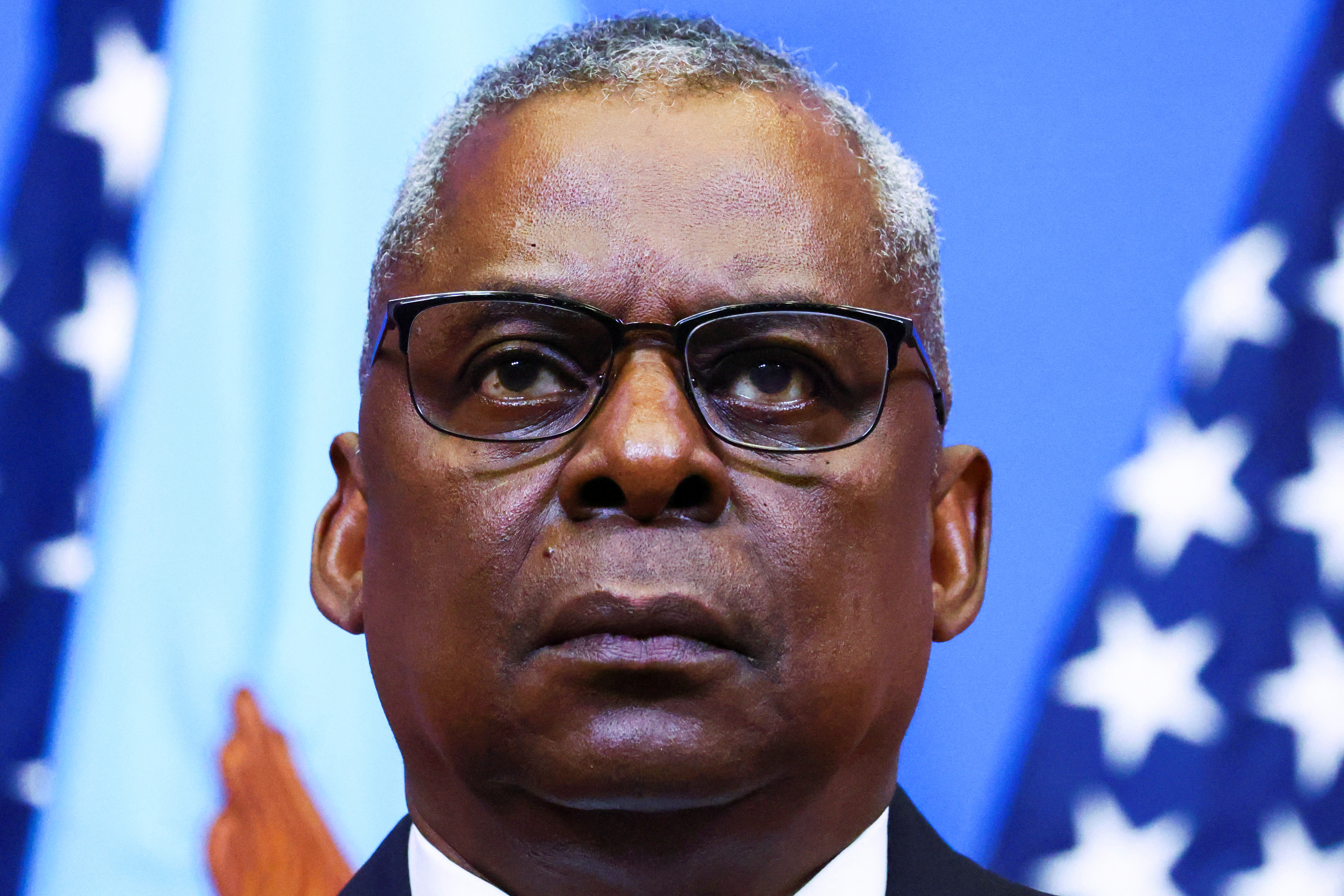
The United States stands with countries fighting China’s “bullying behaviour”, US Defense Secretary Lloyd Austin has said, as he launched bilateral talks in Australia aimed at countering Beijing’s growing influence in the Asia-Pacific.
Chinese policy in the region will be a key point of discussion on Friday and Saturday as the US and Australian defence and foreign affairs ministers meet for annual, bilateral meetings.
Austin and US Secretary of State Antony Blinken arrived in the Australian city of Brisbane late on Thursday in advance of the talks, which also will focus on a deal to provide Australia with a fleet of submarines powered by US nuclear technology.
“We’ve seen troubling [Chinese] coercion from the East China Sea to the South China Sea to right here in the Southwest Pacific,” Austin said before meeting his Australian counterpart, Richard Marles, on Friday.
“We’ll continue to support our allies and partners as they defend themselves from bullying behaviour,” the Pentagon chief added.
Ties between Beijing and Washington have soured in recent years over a range of issues, from trade and the status of Taiwan to China’s expansive claims in the South China Sea and an ongoing US push against growing Chinese influence in the Asia-Pacific region.
But senior US officials, including Blinken and Treasury Secretary Janet Yellen, have travelled to China in recent weeks in an effort to deepen communication between the two countries and avoid veering into a confrontation.
The abrupt removal of Chinese Foreign Minister Qin Gang earlier this week could complicate those efforts to revive tanking relations, analysts told Al Jazeera, though it is unlikely to result in a major change.
Asked this week about US accusations that China is engaged in problematic behaviour in the Asia-Pacific region, Chinese foreign ministry spokesperson Mao Ning said Beijing “is not interested in competing with any country for influence”.
“The cooperation between China and Pacific island countries is open and transparent and fully respects countries’ sovereignty and will. We never attach any political strings and never target any third party,” Mao told reporters on Thursday.
“Pacific island countries are not the ‘backyard’ of any country. China is not interested in competing with any country for influence, or seeking the so-called ‘geopolitical presence’ or ‘sphere of influence,'” she said.
China has spoken out against the trilateral defence deal between Australia, the US and the United Kingdom – dubbed AUKUS – under which Canberra is to obtain three US Virginia-class, nuclear-powered submarines in the early 2030s, among other provisions.
Another Chinese foreign ministry spokesperson, Zhao Lijian, condemned the alliance when it was unveiled in 2021 as an “extremely irresponsible” threat to regional stability.
The three countries were “severely damaging regional peace and stability, intensifying an arms race, and damaging international nuclear non-proliferation efforts”, Zhao said at the time.
‘Working closely with friends’
Australia is reshaping its defence force in response to China’s military build-up, and plans to boost its long-range strike capability, domestic missile production, and interoperability with the US and other regional militaries.
Austin said deepening defence ties, including efforts to integrate Japan into joint force posture initiatives, would be discussed during the talks on Friday and Saturday.
“Now’s the time to be working closely with friends, and Australia has no better friend than the United States of America,” Marles, the Australian defence minister, said at the start of a meeting with his US counterpart.
But in the US, a group of 25 Republican legislators raised questions this week around the AUKUS deal, saying in a letter to US President Joe Biden that the deal would “unacceptably weaken” the US fleet without a clear plan to replace the three submarines Biden plans to send to Australia.
Australian Prime Minister Anthony Albanese said he was confident the plan was on track, however.
“I am very confident,” Albanese told reporters on Friday, when asked about the Republican letter.
He added that he had met Republicans and Democrats on the sidelines of a NATO summit in Lithuania this month and was struck by “their unanimous support for AUKUS”.







